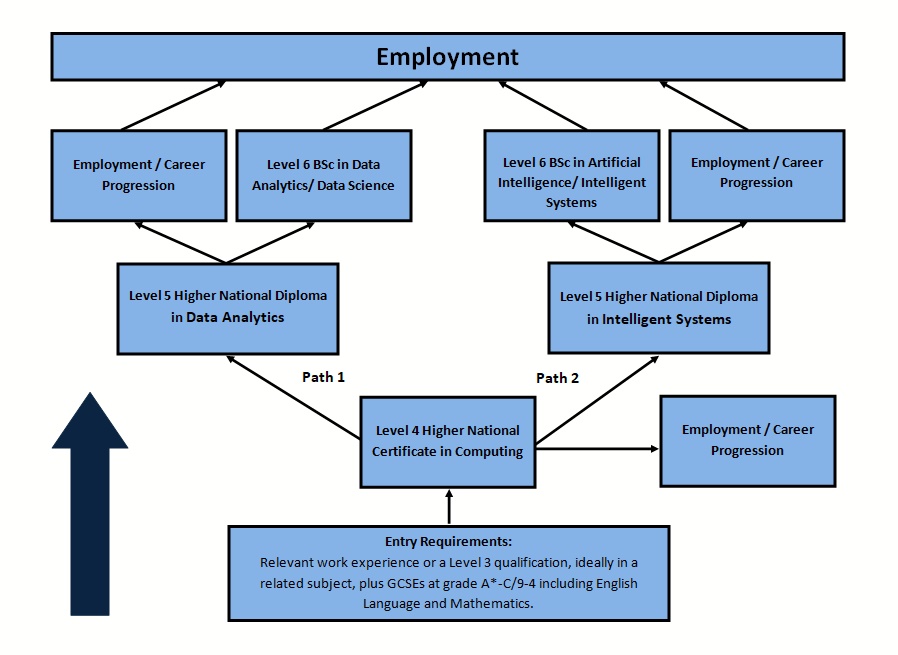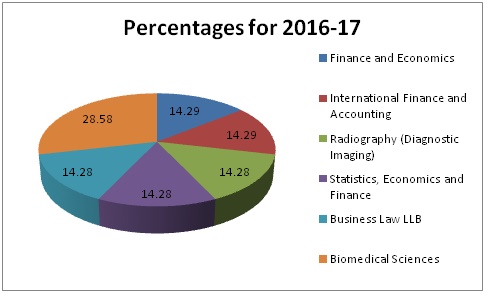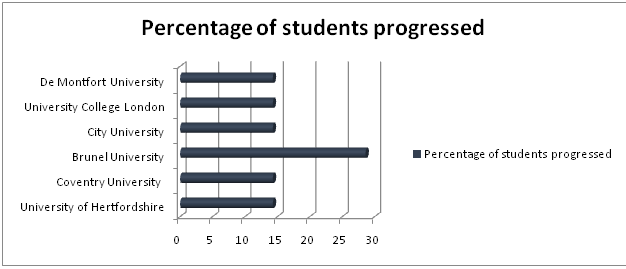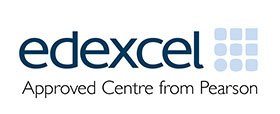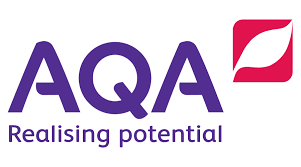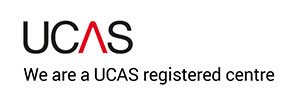1. INTRODUCTION
1.1 These terms and conditions represent an agreement between Harrow Independent College (HIC) and you, a prospective student. By accepting HIC offer of a place on a programme, you accept these terms and conditions in full, which form the contract between you and HIC in relation to your studies at HIC as amended from time to time pursuant to Clause 1.3 (the “Contract”).
1.2 If you have any questions or concerns about these terms and conditions, please contact HIC Administration Department via an email at admin@harrowindependentcollege.co.uk
1.3 Any amendments made by HIC to the Contract will be made available to you. In the event that we are required to make any significant changes to the Contract, we shall take reasonable steps to bring these changes to the attention of affected students as soon as reasonably practicable. Please refer to Clause 10 for further detail.
1.4 Some programmes may require you to agree to the terms and conditions of professional bodies or third party providers. Details of these requirements are set out in the programme information section of the prospectus/programme and course information. By agreeing to these terms and conditions, you also agree to abide by any relevant professional bodies’ terms and conditions.
1.5 In the event of any conflict between a provision in these terms and conditions and the other documents forming part of the Contract including any professional bodies’ terms and conditions (if applicable), these terms and conditions shall take precedence
2.OFFERS
2.1 It is your responsibility to ensure that all of the information you provide to HIC and/or the UK Home Office is true and accurate.
2.2 If it is discovered that your application contains incorrect or fraudulent information, or significant information has been omitted from your application form, HIC may withdraw or amend your offer, or terminate your registration at HIC, according to the circumstances.
2.3 The offer HIC makes to you will be conditional or unconditional. If your offer is conditional, HIC will set out the conditions which you will need to fulfil in order to be admitted onto your chosen programme. In particular your offer may be conditional upon you passing an English language test.
2.4 If you have not fulfilled the conditions of your offer before the date notified to you in your Offer or any other date notified to you, HIC reserves the right to withdraw your offer or defer your application to the next year of entry.
2.5 You may be required, at the request of HIC, to provide satisfactory evidence of your qualifications (including English language qualifications if required) before admission. Failure to provide such evidence to HIC satisfaction may result in the termination of your offer, the revocation of your registration as a student of HIC and termination of the Contract
3. IMMIGRATION
3.1 If you are a national of a country outside the European Union, European Economic Area or Switzerland and subject to UK immigration control, you will need to demonstrate, at the point of Matriculation (as defined in Clause 4.1 below), that you have a valid immigration status to undertake your proposed programme of study.
3.2 You must take responsibility for ensuring that you comply with the terms of your student visa whilst studying at HIC. Should you wish to take up paid employment on a part time basis, you should ensure that such work does not exceed that allowed by the law. Please note that if you choose to withdraw from your studies, if your registration is terminated by HIC or if you are granted permission to interrupt your studies, this will affect the validity of your visa and your ability to enter and/or remain in the United Kingdom.
3.3 Your visa will be revoked if your registration is terminated for any reason. In such circumstances you may not be entitled to a refund of any programme fees already paid.
4. MATRICULATION AND THE SPONSIO ACADEMIA
4.1 Matriculation is the administrative act of becoming a student of HIC. It consists of three components:
(i) registration; (ii) confirmation of attendance; (iii) full admission and carries with it the obligation to abide by the rules of HIC, including the payment of tuition fees and other charges (“Matriculation”).
4.2 The Sponsio Academia is the oath, which was originally in Latin, taken by students matriculating into the college or a university. The Sponsio Academia at first matriculation is as follows: “I acknowledge that in all matters relating to the teaching and discipline of HIC I have willingly placed myself under the jurisdiction of the college, and I recognise that if, in the opinion of the college, my studies or my conduct are unsatisfactory, it has authority to forbid my continuance upon courses qualifying for a certificate or a diploma.”
4.3 After you have accepted your offer, you must matriculate at the commencement of your studies and agree to the Sponsio Academia. You can agree to the Sponsio Academia by accepting the offer as part of the registration process. Thereafter, your annual matriculation status will be dependent on your attendance on your programme being confirmed by HIC.
4.4 Failure to matriculate at the commencement of your studies or failure to have your attendance confirmed at the commencement of your subsequent years of study, in accordance with the timescales set out in HIC rules, regulations, policies and procedures, available on HIC website, will be deemed to be non-matriculation resulting in termination of the Contract and cancellation of your student record.
5. CONDITIONS OF ADMISSION
5.1 Your admission to HIC, attendance on a programme, and right to enjoy any of the privileges of membership of HIC, including access to services and facilities, is subject to you complying with the terms of the Contract and matriculating in accordance with Clause 4.
5.2 You should also note that your progression on your programme and your final award are not guaranteed and are dependent upon your academic performance.
6. DEPOSITS
6.1 In order to secure a place on your programme, you may be required to pay a deposit. If a deposit is required you will be advised, following receipt of your application, by a deposit message sent via an email or in your offer letter.
6.2 If you do not pay the deposit in accordance with the payment terms advised in your offer letter, your application shall be withdrawn without further notice.
6.3 Any deposit you pay will be offset against the balance of tuition fees owed to HIC.
7. FEES
7.1 Subject to Clause 7.2, each year’s tuition fees are due in installments under HIC payment structure (you will be invoiced for each course as you study).
7.2 Fees are subject to revision (as applicable). In deciding upon increases in tuition fees HIC will take into consideration such factors as inflation, market competition, and other external factors out with HIC control. Fee status and consequently the level of fees you pay, is determined in accordance with the prevailing legislation. Changes to that legislation are out with HIC control.
7.3 You will not be deemed to have matriculated until your tuition fees have been paid (or your first installment paid if paying by installments), or satisfactory evidence produced that such fees will be paid by a sponsoring authority/person on receipt of HIC invoice. You will be personally liable to pay your tuition fees if a sponsoring authority/person fails to do so.
7.4 If you are personally liable to pay all or part of your tuition fees, a payment structure and method is available to you. Further information is available on HIC website.
7.5 In the event that your tuition fees have not been paid in full by the relevant Final Payment Date or in accordance with HIC fee structure, HIC shall be entitled, but not bound to, refuse to permit you to continue on your programme of study and terminate the Contract (without incurring any liability to you). In such events, HIC reserves the right to implement this without any prior notice.
7.6 Save where alternative provisions for the payment of interest are contained in a separate consumer credit agreement made between the Student and the College, simple interest may be charged on a day-to-day basis on the Fees which are unpaid. The rate of interest charged will be 1½ % per month accruing on a daily basis which represents a genuine pre-estimate of the cost to the College of a default. Student shall also be liable to pay all costs, fees, disbursements and charges including legal fees and costs reasonably incurred by the College in the recovery of any unpaid Fees regardless of the value of the College’s claim.
7.7 Any sum tendered that is less than the sum due and owing may be accepted by the College on account only. Late payment charges may be applied to any unpaid balance of the Fees.
7.8 Save where student expressly state the contrary, the College shall allocate payments made to the earliest balance on the Fees account.
7.9 HIC may pursue legal proceedings in relation to non-payment of tuition fees.
7.10 In accordance with HIC policy, a refund of tuition fees may be made if you withdraw from a programme (with a notice of 14 days before the start of the programme) with the approval of the relevant Head of the Department.
7.11 If you have any concerns regarding payment of fees or require further information about tuition fees (including the refund of tuition fees), please contact the Administration Department via email at admin@harrowindependentcollege.co.uk
8. OTHER CHARGES
8.1 In addition, you may incur additional expenditure on items such as (but not limited to) registration fees, work placement, specialist materials, supplementary instrumental tuition and annual continuation fees.
8.2 Details of any additional significant expenditure that you may be required to incur can be obtained from the Administration Department at the college. In addition, small charges may be made in some subjects for such items as course materials, and photocopying and laser printing; detailed information may be obtained from the college.
9. CANCELLATION RIGHTS
9.1 If you accept HIC offer by means of distance communication (i.e. there has been no face-to-face contact between HIC and you at the time you accept the offer) you have a legal right to cancel the Contract at any time within 14 days from the date the Contract is formed i.e. from your acceptance of HIC offer. However, if you have obtained the entry clearance or the visa to come and study at our college, no fee and/or deposit will be refunded. The college will be asking you to show all the pages of the passport to a local justice of peace or commissioner of oaths office to verify your documents in order to process the termination of student contract.
9.2 In order to cancel the Contract in accordance with Clause 9.1, you must notify HIC in writing within the timescales referred to in Clause 9.1 and you may give HIC notice of 14 days before the start of the programme.
9.3 If you have made any payment under the Contract prior to the date of cancellation of the Contract then HIC will provide you with a full refund as soon as reasonably possible but in any event within 30 days of HIC receiving your written notice of cancellation.
9.4 Notwithstanding the specific cancellations rights set out in clauses 9.1 and 9.3 and subject always to the terms of clause 7.10 you can cancel the Contract at any time during the course of your programme in consultation with HIC. Cancellation after commencement of your programme may result in loss of whole or part of your tuition fee in accordance with the terms of HIC policy.
10. EDUCATIONAL PROVISION
10.1 HIC shall use its reasonable endeavours to: –
- deliver your Programme with reasonable care and skill and as far as possible, in accordance with the description applied to it in the prospectus/ programme and course information;
- clearly explain the academic requirements of your programme to you.
10.2 You must use all efforts to fulfill all the academic requirements of your programme, including submission of course work and other assignments and attendance at examinations and other required events, on time and in accordance with the relevant policies, rules and regulations of HIC.
10.3 If you do not act in accordance with this Contract, or any of the documents referred to in it, HIC may take disciplinary action against you under its Code of Student Conduct.
11. COMPLAINTS PROCEDURE
11.1 If you have a complaint about HIC, you should follow HIC complaints procedure which can be found on HIC website. This procedure has been produced to help HIC resolve any complaints you may have as promptly, fairly and amicably as possible.
12. LIABILITY
12.1 Whilst HIC takes reasonable care to ensure the safety and security of its students whilst on HIC campus and/or whilst using HIC services, HIC cannot accept responsibility, and expressly excludes liability, for loss or damage to your personal property (including computer equipment and software). You are advised to insure your property against theft and other risks.
12.2 HIC shall not be held responsible for any injury to you (financial or otherwise), or for any damage to your property, caused by another student, or by any person who is not an employee or authorised representative of HIC.
12.3 HIC shall not be liable for failure to perform any obligations under the Contract if such failure is caused by any act or event beyond HIC reasonable control including acts of God, war, terrorism, industrial disputes (including disputes involving HIC employees), fire, flood, storm and national emergencies (“Force Majeure Event”). If HIC is the subject of a Force Majeure Event, it will take all reasonable steps to minimise the disruption to your studies.
13. TERMINATION
13.1 HIC reserves the right to exclude you from HIC if you willfully and persistently neglect your academic work to such an extent that there is no reasonable possibility of you being able to proceed to the next stage of the programme. You should also note, as set out in clause 4.4, that non-matriculation will result in termination of the Contract and cancellation of your student record and, as set out in clause 5.2 that progression on your programme and your final award are not guaranteed and are dependent upon your academic performance.
13.2 HIC also reserves the right to exclude you from HIC for disciplinary offences, for non- matriculation, for non-payment of tuition fee debt, or for inadequate attendance or performance on your programme, in line with the relevant HIC policies and procedures.
14. DATA PROTECTION
14.1 HIC holds information about all applicants to HIC and all students at HIC . HIC uses the information from your application:-
- to process your application, to collect feedback and to send you information about HIC and its events, such as open days; and
- if your application is successful HIC will also use the information it holds about you to deliver your Programme, to provide educational and support services to you, to monitor your performance and attendance, to collect feedback and for management activities such as strategic planning, statistical analysis, equal opportunities monitoring and maintaining our IT systems
14.2 HIC may disclose student information to third parties as set out in the guidance on the disclosure of student information available via HIC website. We will inform you regarding use or disclosure of your information for any other purposes.
14.3 You should refer to HIC data protection policy for more information. This is accessible via HIC website: https://www.harrowindependentcollege.com/about/our-policies/ or email at admin@harrowindependentcollege.co.uk
15. GENERAL
15.1 The terms of the Contract shall only be enforceable by you and HIC.
15.2 The Contract constitutes the entire agreement between you and HIC in relation to its subject matter.
15.3 No failure or delay by HIC or you to exercise any right or remedy provided under the Contract or by law shall constitute a waiver of that or any other right or remedy, nor shall it prevent or restrict the exercise of that or any other right or remedy.
15.4 If any provision or part-provision of the Contract is or becomes invalid, illegal or unenforceable, it shall be deemed modified to the minimum extent necessary to make it valid, legal and enforceable. If such modification is not possible, the relevant provision or part-provision shall be deemed deleted. Any modification to or deletion of a provision or part-provision shall not affect the validity and enforceability of the rest of the Contract.
15.5 The courts in Harrow will have exclusive jurisdiction to settle any dispute or claim arising out of or in relation to the Contract and that in any such proceedings these terms and conditions and the Contract into which they are incorporated will be governed by and interpreted in accordance with the laws.


